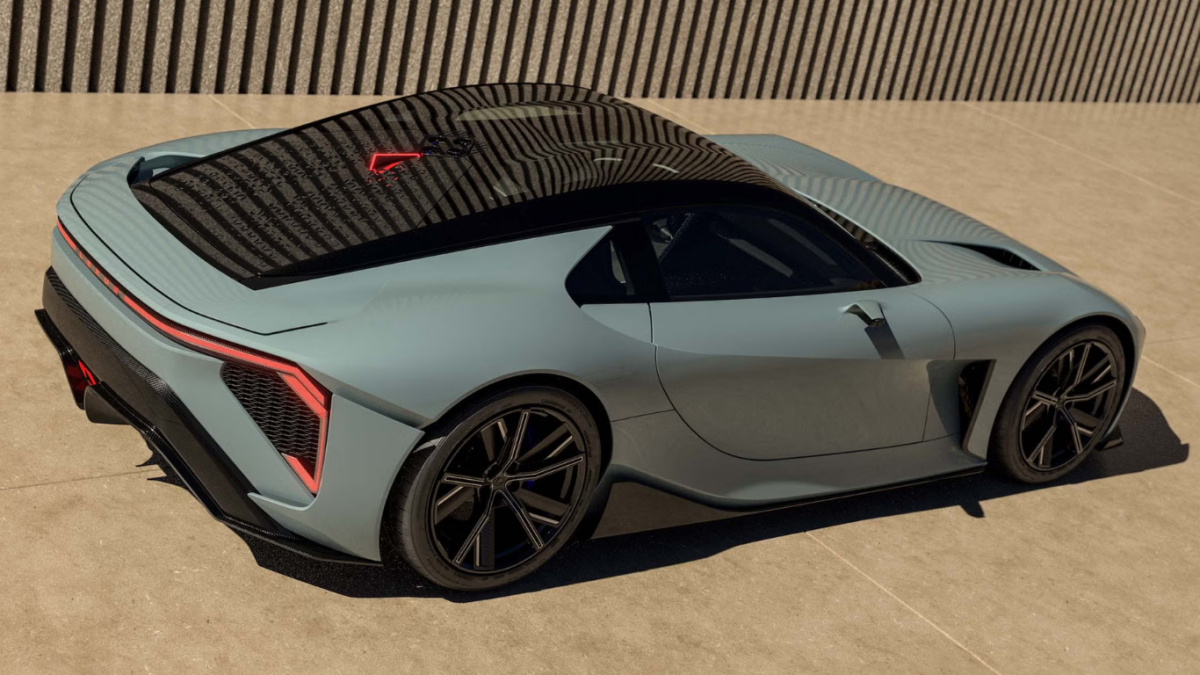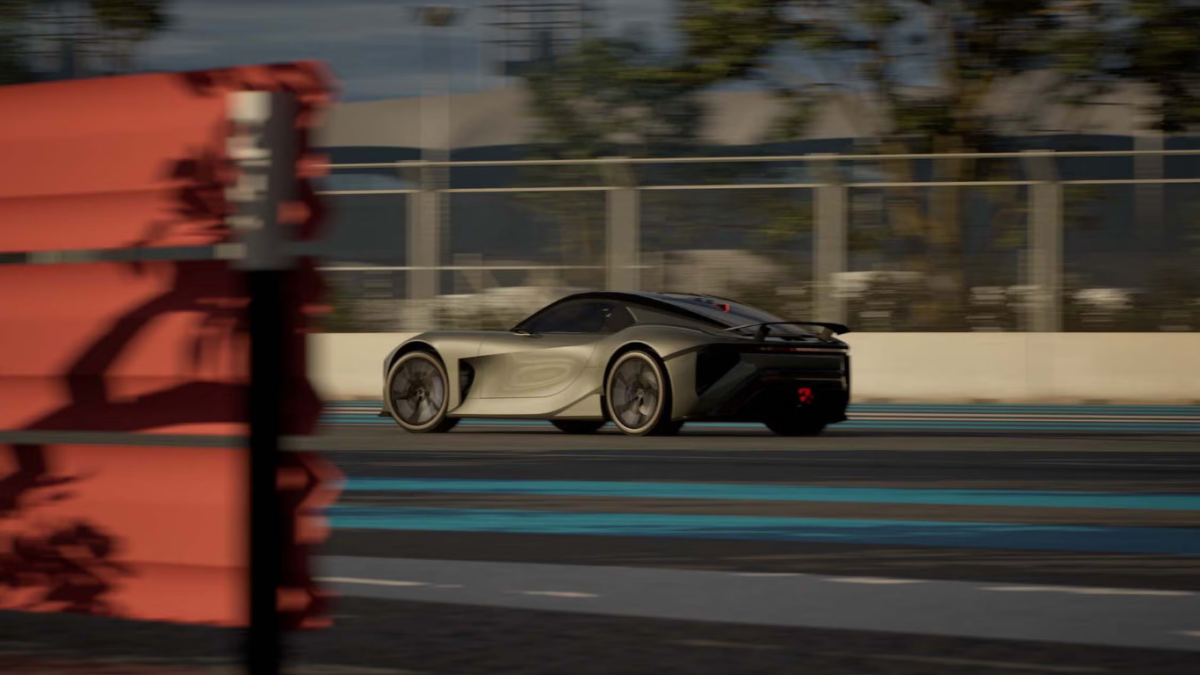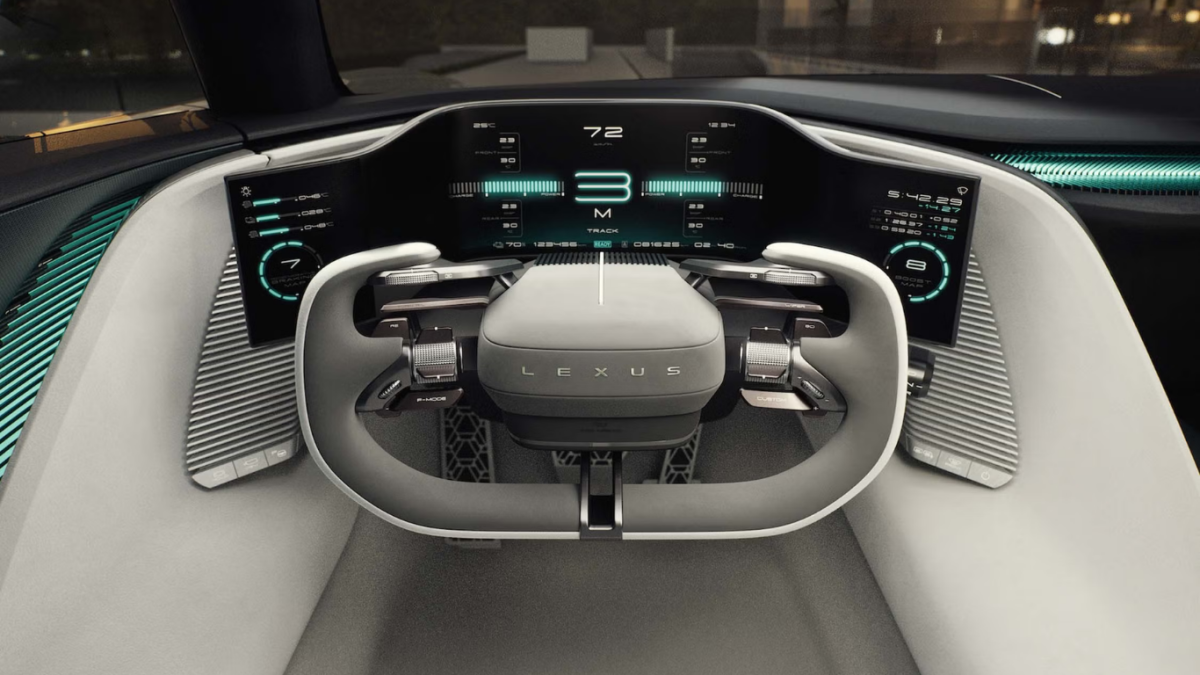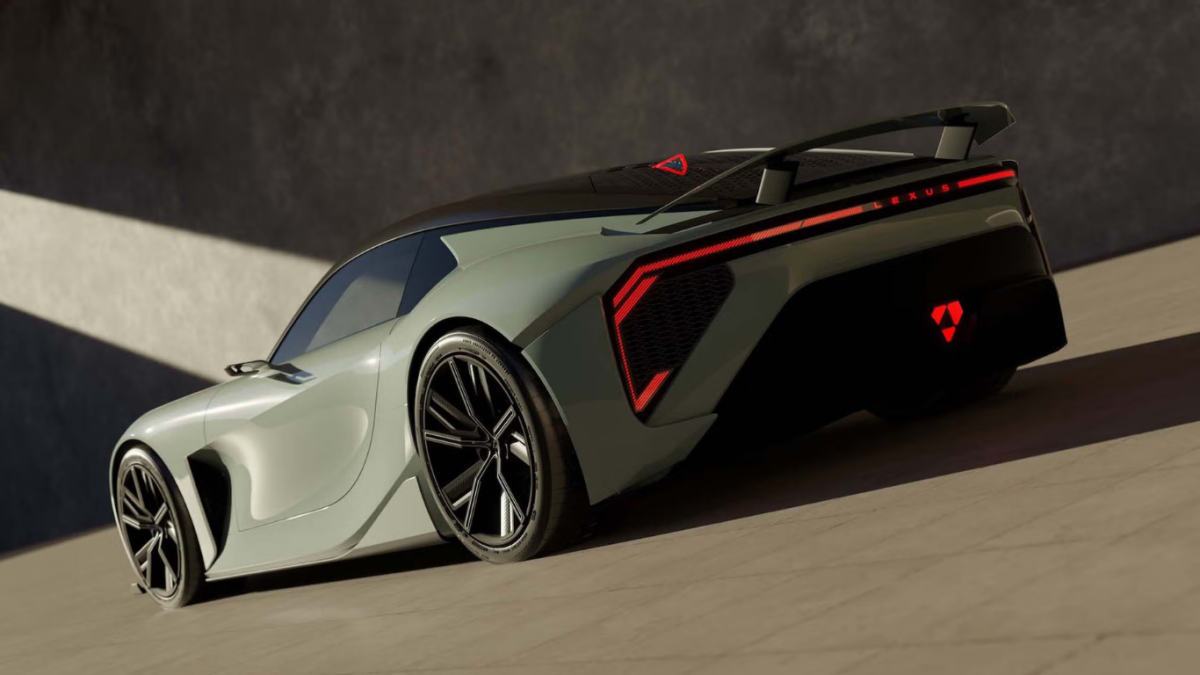At the Japan Mobility Show, Toyota unveiled a new twin-turbo hybrid V8 engine that could anchor its next-generation high-performance vehicles. While Lexus captured attention with its Sport Concept, along with a six-wheeled LS minivan, Toyota’s powertrain reveal hinted at broader ambitions for both brands.
Speaking to Australian media, the announcement marks Toyota’s goal of blending traditional combustion performance with modern hybrid efficiency. Positioned as the centerpiece of its future performance strategy, the new V8 signals that Toyota intends to preserve the excitement of high-output engines while aligning with global emissions standards.
Lexus
Twin-Turbo Hybrid V8 Confirmed
Toyota’s global powertrain chief, Takashi Uehara, confirmed that the company is developing a twin-turbocharged hybrid V8 as part of its modular engine family, Car Expert reports. Toyota has already teased the GR GT’s V8 soundtrack, but final specifications remain under wraps. Early indicators suggest a displacement of around 4.0 litres, combining a high-revving combustion engine with electric assistance for added torque and responsiveness.
Uehara emphasized that the hybrid system will not rely on plug-in charging, allowing it to maintain a focus on performance rather than fuel efficiency alone. The approach positions Toyota’s hybrid technology as an enhancement to driving dynamics rather than a compromise for sustainability.
Lexus
Modular Engine Strategy
The new V8 tops Toyota’s modular engine lineup, which also includes smaller turbocharged options such as 1.5-litre and 2.0-litre variants. This shared architecture enables Toyota to streamline development while offering scalable performance across a variety of models. It also allows engineers to fine-tune characteristics for specific applications, from efficiency-focused vehicles to sports-oriented models.
According to Uehara, the modular system gives Toyota flexibility to develop “gentle” versions for everyday use and more “muscular” variants designed for high-performance driving. This strategy helps the automaker balance efficiency targets with the demand for engaging, powerful engines.
Lexus
Distinct Roles for Toyota and Lexus
While both Toyota and Lexus are expected to use the new hybrid V8, each brand will apply it differently. Lexus is likely to focus on refinement, smooth power delivery, and premium driving comfort. Toyota, through its Gazoo Racing (GR) division, will emphasize raw performance, sharper throttle response, and a more visceral driving experience.
This split reflects Toyota’s broader approach to brand differentiation. Lexus caters to luxury performance buyers, while Toyota’s GR models appeal to enthusiasts seeking motorsport-inspired engineering. The shared technology enables both brands to benefit from a common foundation while maintaining distinct personalities.
Lexus
Commitment to Performance Heritage
By combining hybrid technology with the emotional appeal of a V8, Toyota aims to keep the spirit of driving engagement alive. The strategy places Lexus alongside other performance-oriented hybrid brands, such as Lamborghini, while maintaining a focus on Japanese precision and balance.
Production versions of the twin-turbo hybrid V8 remain in development, and Toyota has not announced a release timeline. However, the flagship power plant is expected to debut in Toyota’s upcoming GR GT flagship, serving as a showcase for the company’s performance vision.
Lexus